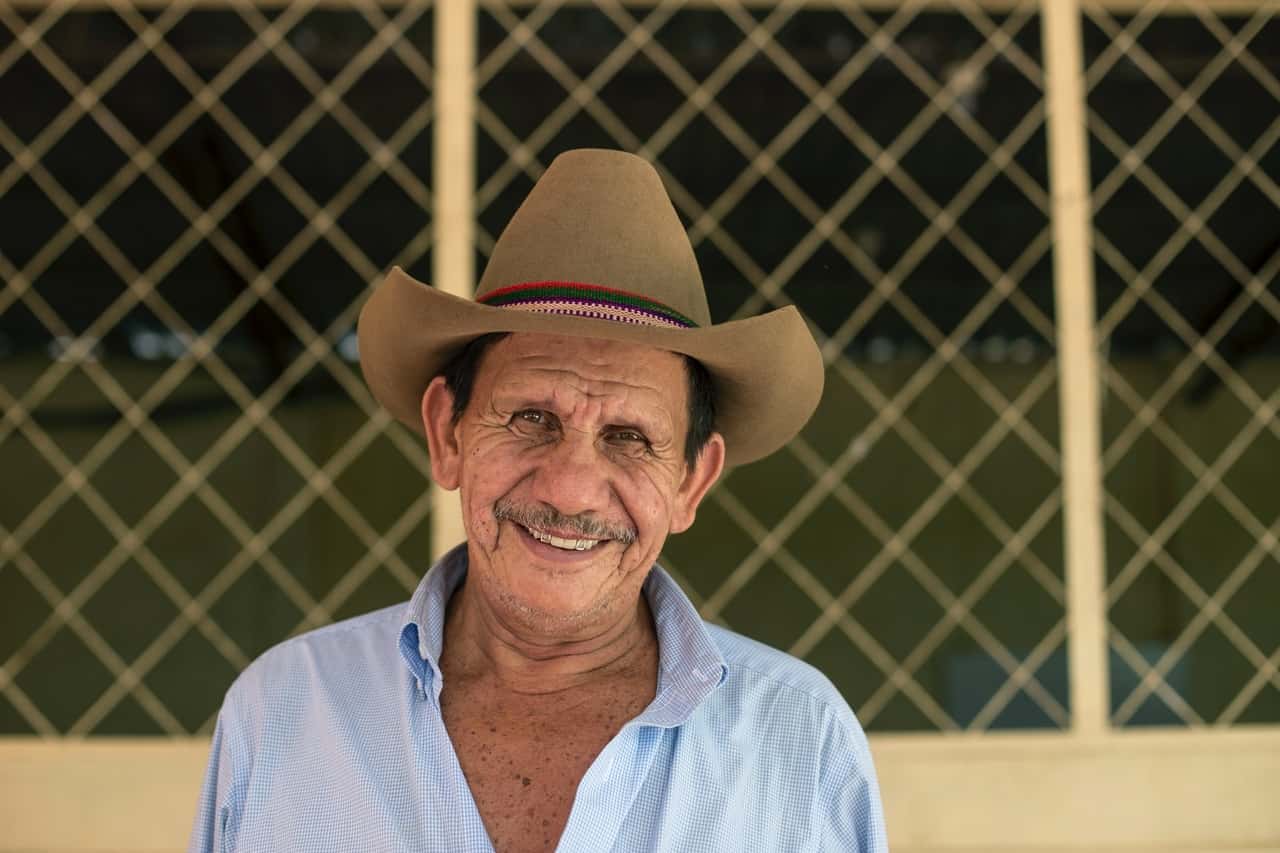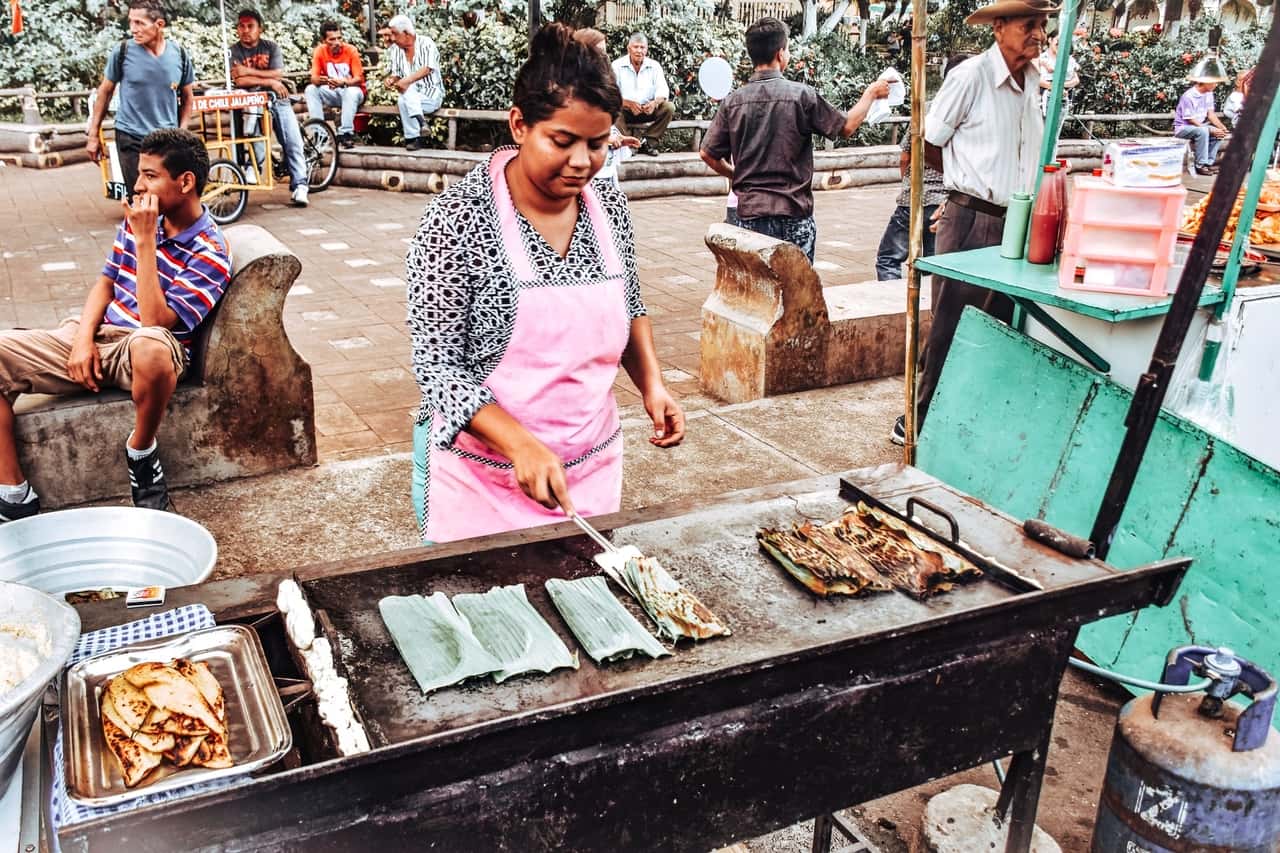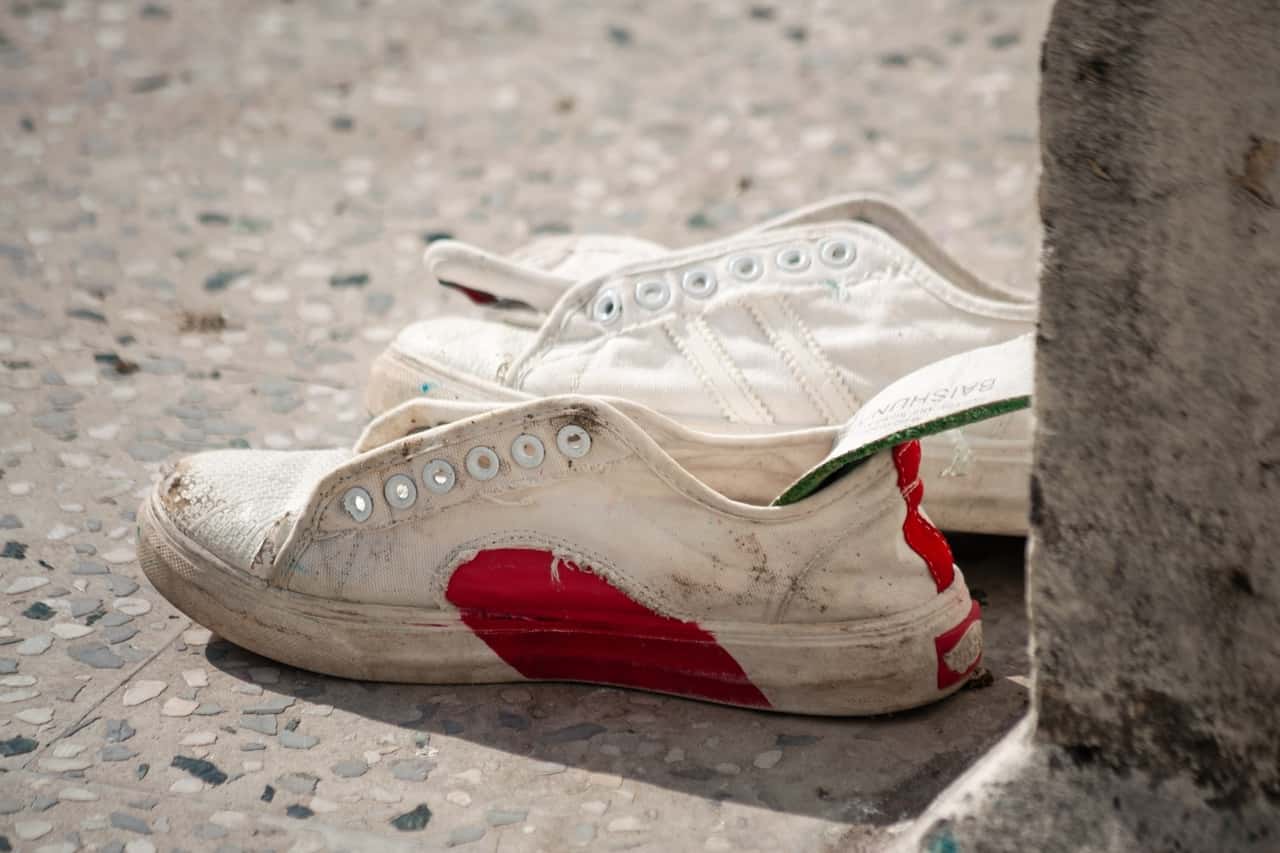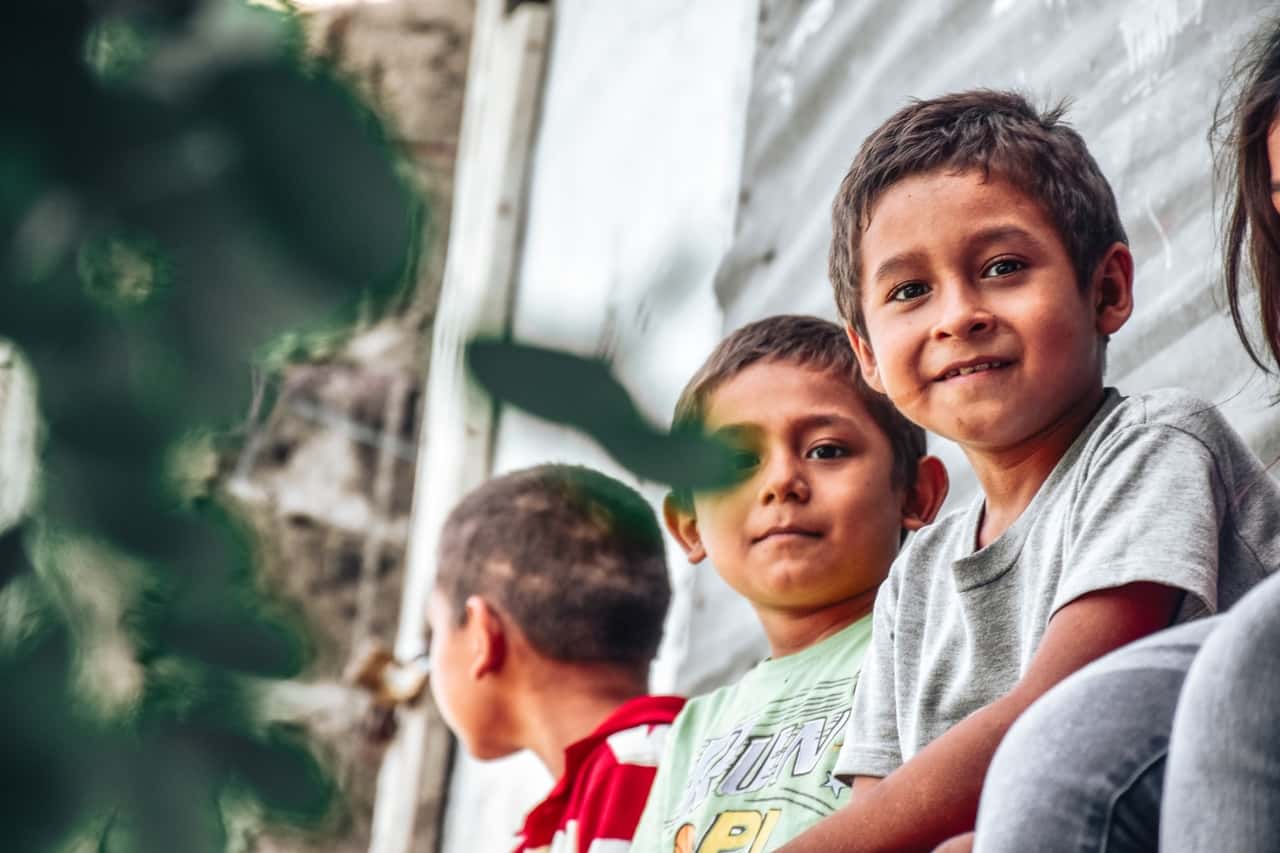
35 Most Common Words in Salvadoran Slang to Sound like a Real Guanaco
DATE:
El Salvador is a small country located in Central America with a little more than six million inhabitants, characterized by its colorful streets and peculiar language. Learn more about Salvadoran slang below.
Spanish is a language spoken by almost 500 million people natively in more than 20 countries, and that would be one of the reasons for the great amount of variations and particularities that this language presents in each Spanish-speaking nation. Each country seems to have its own version of Spanish and even with unique words that have diverse and very curious origins.
When learning to speak Spanish as a second language, It’s common to leave aside some of these magnificent variations that the language presents in each country, and focus on learning the conventional way that can be understood in all countries equally.
However, the variations of Spanish in Latin American countries are really fascinating, its capacity for interpretation, pronunciation, and applications make learning this language a wonderful adventure that nourishes our spirit of culture and years of history.
El Salvador is one of those countries where its inhabitants, throughout history, have made their own version of Spanish and today is known for having an interesting local slang that easily adapts to foreigners. In this article, you will learn some of the most popular phrases of Salvadoran slang.
El Salvador and its Jargon: A Mix of Fascinating Expressions
If you wish to travel to El Salvador or interact with some of its citizens, you should pay attention to some of its most popular expressions and thus connect more deeply with its inhabitants.
As in most Latin American countries, Spanish is the official language of El Salvador, however, throughout history, it has been modified a bit to create a rather particular version, which in addition to annexing to its jargon quite curious words, the way to conjugate the verbs and address in second person changes subtly.
The way to address someone in El Salvador is similar to the way It’s done in Argentina and its slang is characterized by a series of terms that together form the “Salvadoran caliche” which mixes Spanish jargon with the colloquial expressions of its habitants.

Using some of these idioms will be well received among Salvadorans, who are characterized by their warmth and friendliness, in addition to giving you the opportunity to enrich your vocabulary.
The Salvadoran words are mostly original creations, others derived from words in indigenous languages or some that simply changed the meaning with which they are known in other countries, making it clear that their jargon is a mixture of stories, cultures, and eras.
Most popular Salvadoran slang words
The inhabitants of El Salvador are known for their particular way of speaking and expressing themselves, with a vocabulary rich in unique words with colorful meanings that you can put into practice to interact like a true native with the guide that we bring you below.
If you want to interact with the natives next time you visit San Salvador or any other place in the country, pay attention to each of these Spanish slang words, they could be very useful to make the most of your trip to El Salvador one day.
Slang words for greeting
If you visit El Salvador you can greet people correctly using some of these words depending on the context of the greeting. They represent a way of saying Hello and Goodbye, you can say them with confidence.
Quiubo
It’s the typical Salvadoran greeting, used as a substitute for the word hello or any form of greeting.
- ¡Quiubo, tenía tiempo que no te veía! – Hey, what’s up!? I haven’t seen you in a while
- Quiubo, ¿cómo has estado? – Hi, how have you been?
Salu
It’s a popular way to say “goodbye”.
- Salu, nos vemos mañana. – Goodbye, see you tomorrow.
- Me encanto verte, salu. – I loved seeing you, goodbye.
Slang Words to express surprise or to refer to an object or situation
In Salvadoran slang It’s very common to use characteristic words to refer to common situations, express a state of mind or identify any thing or object. These are the most commonly used words in Salvadoran everyday life.
Arrecho
It’s a very common word in Latin America and in every country it has a different connotation, except in Venezuela where it can mean multiple things. In El Salvador it means that something is very good, excellent or great.
- El nuevo carro de Fernando está arrecho. – Fernando’s new car is incredible.
- Tu peinado está arrecho. – Your hairstyle is great.
Bolado
It’s a word that is used to refer to anything; it’s like a jack of all trades that can be used in any context.
- Pásame el bolado que está sobre la mesa. – Pass me that thing on the table.
- Dos bolados de los que están en la vitrina, por favor. – Two of those things in the display case, please.
Cacaso
It means something of poor quality, boring or sad.
- Ese juego de béisbol estuvo Cacaso. – That baseball game was boring.
- El teléfono que compré se dañó rápido, un Cacaso. -The phone I bought got damaged quickly. It’s of poor quality.

Casamiento
Its literal translation is “marriage” but in El Salvador It’s the name of a delicious traditional dish that brings together, as in a marriage, its main ingredients: rice and black beans, and that is where its unique name comes from.
- Hoy comeremos casamiento. – Today we will eat the typical dish of rice and beans.
- El casamiento estaba delicioso. – The dish was very good.
Chafa
It means that something is of poor quality or a counterfeit product.
- Esa ropa es una chafa. – These clothes are of poor quality.
- La cocina parece ser una chafa. – The kitchen seems to be a fake.
Chuco
It means something is dirty or messy.
- José tiene chuco el cuarto. – Jose has a dirty room.
- No me gusta el supermercado de la esquina, siempre está chuco. – I don’t like the supermarket on the corner, it’s always dirty.
Chucho
It’s a popular way to refer to dogs.
- Qué lindo está tu Chucho. – How beautiful is your dog
- El Chucho de mi casa es muy cariñoso. – The dog in my house is very affectionate.
Cora
It means $0.25 or a quarter, and is a very common diminutive to express the price of a product or service, taking that amount as the initial basis.
- El jugo vale 2 Coras. – The juice is worth 50 cents.
- Solo tengo 1 Cora en el bolsillo. – I only have a quarter in my pocket.
De Choto
It’s a colloquial expression to define something free.
- Compré dos muebles y me dieron otro de choto. – I bought two pieces of furniture and got another one for free.
- Los cupones son una alternativa para conseguir productos de choto. – Coupons are an alternative to get free products.
Desmadre
Like in Mexican Spanish it alludes to disorder, chaos and any situation that breaks the rules.
- Luego que sirvieron los tragos se armó el desmadre. – After the drinks were served, all hell broke loose
Los amigos de José siempre arman desmadre. – Jose’s friends are always making trouble.

Está Yuca
It’s a Salvadoran version to express that an action is very difficult to accomplish.
- Esta yuca que pueda salir el sábado. – It’s difficult for me to go out on Saturday.
- Si no nos vienen a buscar, estaría muy yuca irnos por nuestra cuenta. – If they don’t come to pick us up, it would be very difficult to leave on our own.
Pisto
It means cash or money.
- Tengo pisto para salir el viernes. – I have money to go out on Friday.
- Sin pisto no podrás comprar el carro. – Without money you cannot buy the car.
Puya
It’s used to express surprise or shock.
- ¡Puya! No esperaba verte tan pronto. – What a surprise! I didn’t expect to see you so soon.
- ¡Puya! Nos vamos en una hora. – I didn’t expect it! We leave in an hour.
Seco
It’s a way to call someone skinny without sounding dismissive.
- Estás seco, debes comer mucho más. – You’re skinny; you should eat a lot more.
- Juan está seco, seguro es por caminar tanto. – Juan is skinny, I’m sure it’s from walking so much.
Tener Goma
Although it’s used in other Latin American countries, in El Salvador it’s the most common way to refer to a hangover after a night of drinking.
- Tengo goma de la fiesta de ayer. – I have a hangover from yesterday’s party.
- No puedo pararme de la cama, tengo goma. – I can’t get out of bed, I have a hangover.
Yinas
It’s the colloquial way of calling the sandals that are used on the beach.
- Qué bonitas son tus yinas. – How beautiful are your sandals.
- María vende yinas en la playa. – Maria sells sandals on the beach.
Slang Words to refer to another person or a place
These are the words most commonly used to qualify a person, either by their appearance, lifestyle, state of mind or characteristics. In the case of places they can be applied to describe their condition.
Baboso
It refers to a person who is dumb, stupid or uncomfortable. This word has similar connotations in other Latin American countries.
- Eres muy baboso cuando hablas con esa chica. – You are very silly when you talk to that girl.
- ¡No seas baboso y deja de incomodar a los demás! – Don’t be an idiot and stop bothering others!
Bayunco
It refers to a crazy person or a crazy situation, in the good sense, a situation that is usually incredible and generates great emotion.
- Ese jugador anotó tres goles en un mismo partido. ¡Qué bayunco! – That player scored three goals in one game. What craziness!
¡Qué bayunco ese concierto de anoche! – What a crazy concert last night!

Bicho
Salvadorans use this term to identify a child or young person.
- Ese bicho juega muy bien al fútbol. – That young man plays soccer very well.
- Ese bicho es compañero de clase de mi hijo. – That child is my son’s classmate.
Buena Onda
It’s an expression that describes a situation or person with good vibes or good energies, if you use it on the contrary as “mala onda” (bad vibes) you mean the total opposite.
- Qué buena onda es tu amigo Juan. – How cool is your friend Juan.
- El sitio nuevo es muy buena onda. – The new site is very nice.
Chera o Chero
It’s another colloquial way of referring to a child.
- Ese chero es muy bonito. – That kid is very beautiful.
La chera está jugando con sus muñecas. – The little girl is playing with her dolls.

Cipote
Another way to describe a young person. They can be a child, teenager or person under 30.
- Los cipotes van a la universidad. – Young people go to university.
- Está muy cipote para entender eso. – He’s too young to understand that.
Maje
It’s a way of referring to friends or if you dislike someone.
- Maje vamos por otro trago. – Buddy, let’s go for another drink.
- Este maje es un pesado. – This guy is a pain in the ass.
Zurumbo
It’s an expression that often defines a state of dizziness or a dumb person.
- José tiene zurumbo. – Jose has dizziness.
- Carlos se hace el zurumbo con la cuenta del bar. – Carlos’s playing dumb with the bar tab.
Salvadoran Slang Words to express an action, decision or affinity
The most common actions, a feeling of affinity or a concrete decision have characteristic words within Salvadoran slang words that allow them to accurately describe a context that could not be explained in a traditional Spanish word. Below we will show you the most common words in the Salvadoran jargon in this aspect.
Aguja
It means that someone is very prepared or focused on a goal.
- Luis anda aguja para comenzar la construcción de su casa. – Luis is ready to start building his house.
María y Jazmín están agujas para presentar el examen de admisión en la universidad. – Maria and Jasmine are prepared to take the university entrance exam.

Bajonear
In Salvadoran slang this word is used to express the moment to eat or go to eat.
- Ya es hora de bajonear. – It’s time to eat.
- Cuando salgas del trabajo, nos encontramos para bajonear. – When you leave work, we meet for lunch.
Cabal
It’s used to say that you agree with something or someone.
Conditional tense: suggestions
|
Spanish |
English |
|---|---|
|
A. Creo que Luis es un gran jugador de tenis B. ¡Cabal! |
A. I think Luis is a great tennis player. B. Exactly! |
|
A. El nuevo horario va a perjudicar la hora de llegar a casa. B. ¡Cabal! |
A. The new schedule is going to make it harder to get home. B. I agree! |
Conditional tense: requests
Chillar
As in other Latin American countries this word is used to describe when someone complains or gets mad about some situation.
- María va a chillar cuando vea los nuevos precios. – Maria is going to get mad when she sees the new prices.
- Los ciudadanos siempre chillan por la inseguridad. – Citizens always complain about insecurity.
Chivo
It’s used to give approval to something you consider fantastic.
- ¡La fiesta estuvo bien chivo! – The party was really great!
- ¡Qué chivo que vamos para la playa pronto! – How great that we are going to the beach soon!
Embolar
It’s a word you say to refer to being drunk or going to get drunk.
- El viernes me voy a embolar con mis amigos. – On Friday I’m going to get drunk with my friends.
- Nos embolamos cuando celebramos el ascenso de Felipe. – We got drunk when we celebrated Felipe’s promotion.
Paja
It’s the Salvadoran version of “lies”.
- Lo que dice María es pura paja. – What Maria says is a lie.
- Es paja que dormiré temprano hoy. – It’s a lie that I will sleep early tonight.
Pencazo
In Salvadoran slang it means “blow”. Have you had a “Pencaso”?
- Tremendo pencazo el que se dió Jorge al caerse de la silla. – What a terrible blow it was when Jorge fell off his chair.
- José estaba distraído y se dió un pencazo. – Jose was distracted and took a knock.

Remar
It refers to the action of constantly walking.
- Hay que remar hasta la escuela. – You have to walk to school.
- Estoy cansado de remar todos los días. – I am tired of walking every day.
¡Listo el bolado!
Salvadoran slang words have many incredible expressions that don’t have a literal translation into any other language, they’re very cool and will make you want to keep in constant touch with Salvadoran people who are usually incredibly friendly and warm.
Knowing and putting into practice each of these phrases or words will help you improve your fluency in Spanish and really connect with natives. If you don’t have anyone to practice with, we invite you to try a free private class or a 7-day free trial of our group classes and see why thousands of students trust SpanishVIP!








